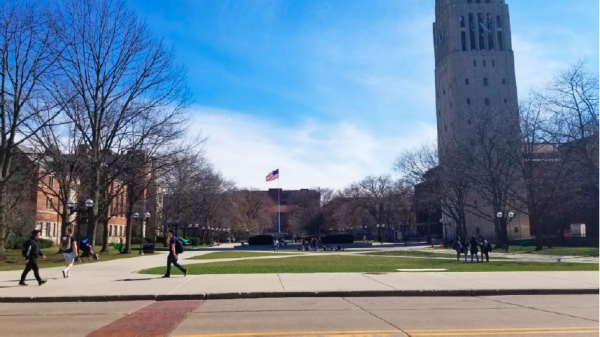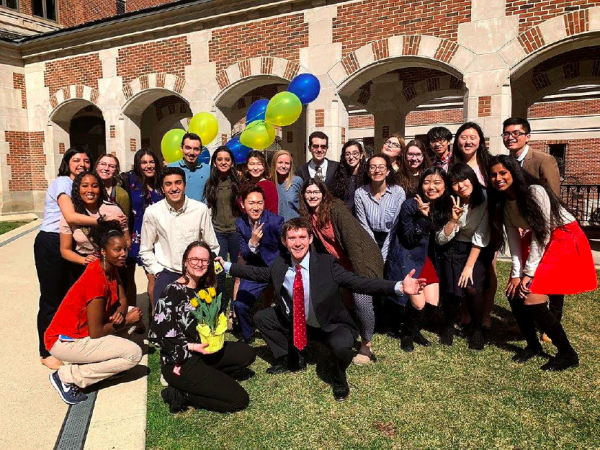 Umich campus on a rarely-sunny day in April
Umich campus on a rarely-sunny day in April
 With some of the GSP members
With some of the GSP members
期 間:August 2018 – May 2019
Half a year has already passed since I came back to Japan, but the memories of the days in the United States are still alive. Until the beginning of the May 2019, I was in Ann Arbor, Michigan, as an exchange student for two semesters. It was the third time for me to stay in the U.S., but the first time to live by myself (well, not exactly by myself since I was in a dorm). The days were full of learnings. There are so many things to tell. It gave me wonderful new friends, different perspectives toward the world, deeper understanding of my own identity, and so on; but if I have to put all of them into one word, "output" is the perfect one. Through my study abroad experience, I was encouraged to output myself, which made me realize the power and the importance of expressing my own thoughts to others.
In the U.S., I often encountered countless moments to overserve and practice outputs. For instance, I still remember the night at the dorm; I was studying with one of my friends, and two students (one was Australian and the other was American, I believe) stopped by to chat with us. A few minutes later, the topic shifted to the balance between technological development and the environmental problems and each of the students started explaining their ideas. It wasn't a serious academic discussion nor a heated quarrel, but just a casual chat. At first, I was surprised at how much they were used to that kind of "outputs." Witnessing that sort of moments several times, I gradually came to understand how various the opinions of people were depending on their own experiences and knowledge, and how crucial it was to express my thoughts to others. After that, I started practicing such outputs. Speaking out was a challenge for me, but at the same time, it was quite exciting.
While the struggle, I found that all of the input - memories of childhood, experiences at home, academic knowledge et cetera, was useful in organizing my thoughts. That is, in order to perform meaningful output, it is the essential first step to cultivate one's thoughts toward the society by, for instance, listening to others' stories, learning various things, or experiencing another culture. Both the people I met and the courses I took in the U.S. helped me develop the basis of my opinions. To give an example, a taxi driver I met in California left me a deep impression. He was an immigrant from Istanbul, a city in Turkey, and he told me about his life and how he thought about his home country, America and Japan. Chatting and exchanging opinions with him, I acquired a new viewpoint to think about multicultural society, which enabled me to form my own opinion toward the topics related to multiculturalism, such as the social problems brought about by migration and globalization.
To sum up, studying in the United States let me improve several aspects of myself such my English ability as well as my academic and cultural knowledge, but more importantly, it enhanced my output ability. I think that skill is significant in today's world because it lets others know about me, and also it promotes my own understanding of others and myself. Keeping this in my mind, I will continue to put effort into speaking out my opinions in a fair and sincere manner.
Lastly, I would like to thank the Global Leaders Program, the Hitotsubashi University and everyone - my family, friends and all of the awesome people I met during my study abroad - for providing me with the precious opportunity. And if you are a student interested in studying abroad but feeling nervous about it, I definitely recommend you to break out your comfort zone to expand your horizons. It's worth it!







